How Red Clover Benefits Your Health, Uses, And Dosage
From reducing asthma to managing PCOS, this herbal medicine can benefit you in many ways.
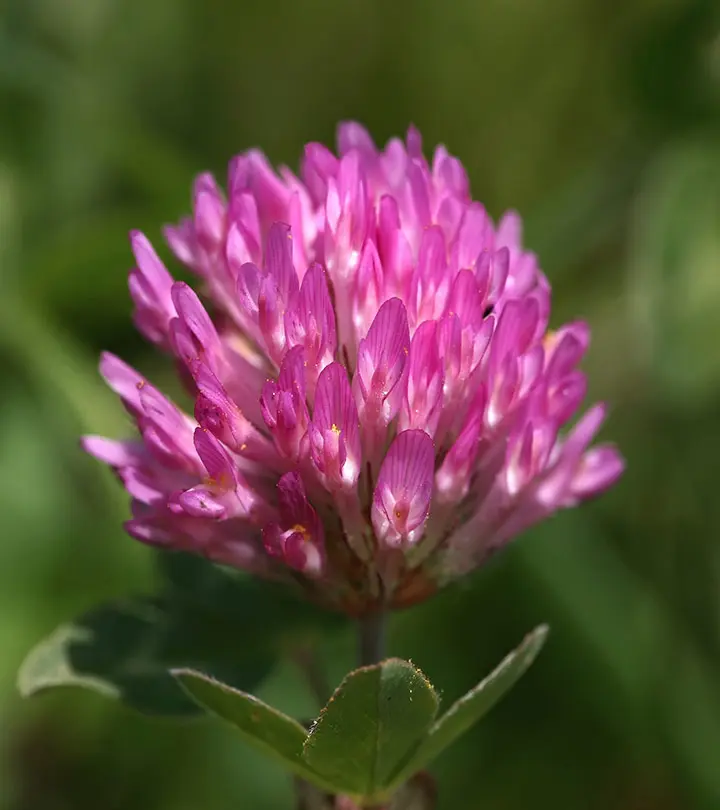
Image: iStock
The benefits of red clover have been first tapped by folk medicine to treat menopausal symptoms and hot flashes. These pink-red flowers are an amazing source of protein and plant chemicals besides possessing antioxidant, anti-inflammatory, and blood-purifying properties.
Moreover, this herb is said to slow down cancer progression, reduce asthma, and help manage PCOS. But are these claims backed by scientific data? What do modern-day studies suggest? Is it safe to use this herb at all?
In this article, we answer all these queries and explore how to consume red clover, how to make its tea, and more. Read on!
 Know Your Ingredient: Red Clover
Know Your Ingredient: Red CloverWhat Is It?
A pink-red flower from the Trifolium pratense L that has a sweet flavor.
What Are Its Benefits?
It may reduce hot flashes, help manage asthma, promote collagen production, and improve blood circulation in the body.
Who Can Consume It?
Anyone can consume this except children and people on blood thinners and hormone replacement therapy.
How Often?
You can consume 40 to 80 mg daily.
Caution
Avoid consuming red clover if you are pregnant or breastfeeding. It may cause headaches, nausea, or rashes in some people.
In This Article
What Is Red Clover? What Is It Known For?
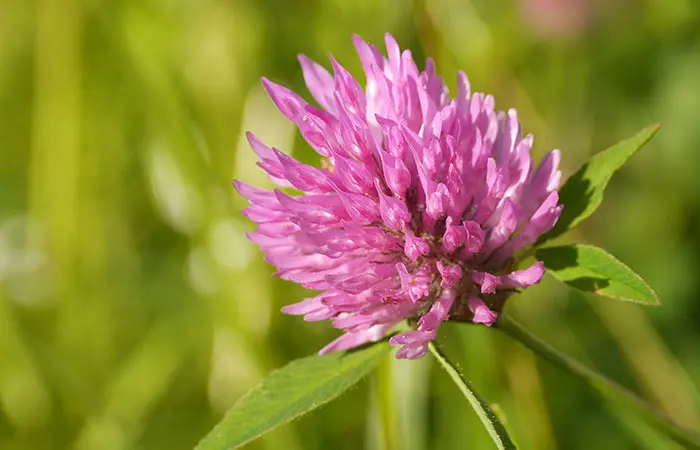
Red clover (Trifolium pratense L.) is a member of the family of beans and peas, known as Fabaceae/Leguminosae. The unique pink-red flower heads are characteristic to this plant (1).
This clover variety is excellent fodder for animals, livestock, and poultry. It has highly digestible protein content and net energy value (2).
For centuries, the clover plant has been used to manage asthma, whooping cough, and gout. Traditional medicine uses semi-purified leaf extracts of this plant to address menopausal disturbances in women (1), (3).
A few of these benefits are attributed to the presence of isoflavones in red clover. Isoflavones are also called phytoestrogens because of the structural similarity they share with the estrogen in our body (3).

Phytoestrogens usually tend to interfere with the activity of estrogen. They may act as agonists or antagonists to this hormone, depending on their level in the body. Hence, red clover and its supplements are sold as a women’s health aid (3) (4).
How effective is this herbal medicine? Is it safe to have red clover supplements? Find answers to these questions in the sections below. Start scrolling!
 Fun Fact
Fun FactKey Takeaways
- Red clover may help manage asthma and reduce the risk of cancer.
- It can help rejuvenate skin cells and reduce hot flashes experienced during menopause.
- Red clover tea acts as a blood purifier and improves circulation.
- Studies suggest that a daily dose of 80 to 120 mg of red clover supplements may benefit your health.
How Does Red Clover Benefit Your Health?
Red clover may reduce menopausal symptoms, including hot flashes. Its extracts may affect cardiovascular and bone health.
1. May Reduce Hot Flashes
Red clover extracts are marketed as a cure for hot flashes and other menopausal symptoms.
A few clinical studies showed a reduction in the frequency of hot flashes, more so in women with high severity () (4), (5).
A study reported that consuming this herbal supplement for 12 weeks had a positive effect on treated menopausal women. Its isoflavones reduced their levels of stress, anxiety and depression (4).
However, a bigger volume of research claims there is no significant effect of red clover on hot flashes (4), (6).
2. May Suppress Asthma And COPD
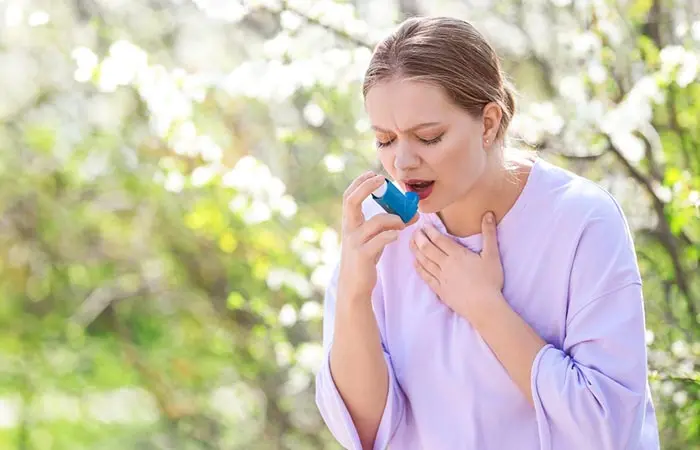
Red clover tea or tincture is used to manage whooping cough, asthma, bronchitisi A respiratory tract infection that causes inflammation of the bronchial tubes that carry air to the lungs. , laryngitisi An inflammation of the voice box due to an acute viral infection that causes cough, pain, and fever. , and tuberculosis. The active molecules responsible for these effects include formononetin, biochanin A, daidzein, and genistein. All of these are isoflavones present in red clover and soy (7).
Formononetin and biochanin A are present in a higher proportion in this plant. Biochanin A reduces the levels of inflammatory cells and chemicals. In animal models for asthma, this isoflavone relaxes the tracheal muscles and brings down inflammation (7).
But prolonged use of red clover showed a few side effects, according to recent research. The patients in these studies complained of nausea, headache, and gastrointestinal discomfort (7).
3. May Improve Quality Of Life In Women
One of the symptoms women face during menopause is hair loss. Hair becomes weaker, and the scalp may lose the proliferating hair follicles, all at once. The hormonal changes during this phase also affect your skin texture (8).
Plants like red clover and soybean are rich in phytoestrogens. These molecules may take up the role of estrogen in your body, especially when one is deficient in the latter (8).
Ingesting red clover supplements could improve nails, skin, and hair health. They may also enhance libido and sleep in post-menopausal women. This herbal extract may also keep fatigue, mood swings, and anxiety under check (8).
4. May Slow Cancer Progression
Red clover contains isoflavones like genistein, daidzein, and biochanin A. Contrary to the belief, these molecules may not enhance the risk of breast cancer. In fact, they act as weak estrogen agonists and protect you from such cancers (6).
The isoflavones suppress the production of enzymes like cyclooxygenase (COX). The COX enzymes are responsible for flaring up inflammation and cell damage. Hence, having red clover, beans, and legumes can manage the spread and severity of cancer (9).
Also, there is enough evidence showing lower rates of breast, prostate, gastrointestinal, and urinary tract cancers in people consuming isoflavone-rich foods (9).
5. Maintains Your Skin

Red clover has antimicrobial and anti-inflammatory properties. Native Americans used it to cure external skin infections. This plant may help treat athlete’s foot, burns, sores, and ulcers effectively (10).
Estrogen has a direct impact on your skin. It increases the collagen content and improves the skin’s moisture-holding capacity, thus enhancing skin health. Higher collagen levels make your skin look plump and young (11).
Since menopause causes an imbalance in estrogen levels, your skin may look dull, dry, and wrinkly. In such cases, red clover phytoestrogens help, to an extent, repair and rejuvenate your skin cells (11).
6. Purifies Blood And Improves Circulation
Native Americans used an infusion or tea with red clover blooms/flowers as a blood purifier. Tocopherol, the active ingredient in these flowers, possesses the necessary antioxidant potential (12).
It improves circulation and relaxes stiff muscles. You can brew a tea with red clover, burdock roots, prickly ash, and sassafrass and drink it to detox your body.
But beware! Having red clover tea with these herbs can have certain side effects (13).
7. May Manage Polycystic Ovary Syndrome (PCOS)
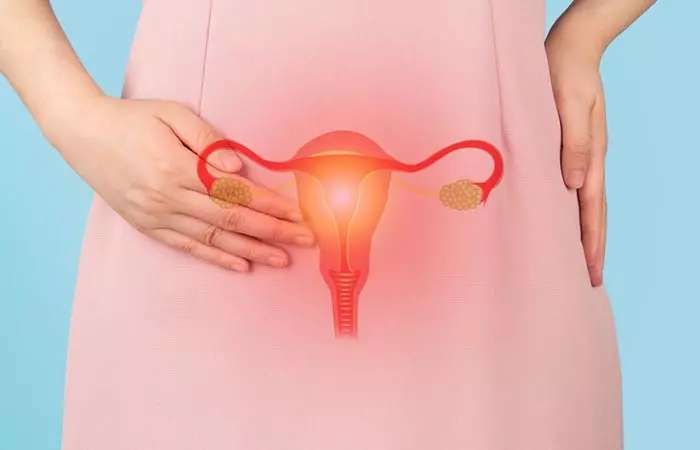
One of the prevalent conditions in women is polycystic ovary syndrome (PCOS). Obesity, inflammation, and free radicals worsen PCOS in obese/overweight women.
Foods/supplements rich in phytoestrogens prevent/control several metabolic disorders. These molecules eliminate free radicals in your body and purify your blood (14).
Red clover may have progesterone-like compounds in its extracts. Along with phytoestrogens, these chemicals aid in treating complex conditions like endometriosisi A medical condition characterized by the growth of a tissue, similar to the uterus lining, outside the uterus. and fibroids (14), (15), (16).
With further research, such plants could be used in hormone replacement therapy. They can substitute the current estrogen and progesterone regime, provided they have no side effects (16).
 Trivia
Trivia8. May Help Prevent Osteoporosis
Red clover is rich in isoflavones that may positively affect bone mineral density and reduce the risk of osteoporosis, a condition characterized by weak and brittle bones (17). Studies suggest that these compounds may positively impact bone health by increasing bone mineral content (18).
Additionally, red clover’s anti-inflammatory and antioxidant properties contribute to overall bone health. Incorporating it into a balanced diet might aid in osteoporosis prevention, particularly in menopausal women, and improve overall health (17). However, more studies are needed in this regard. Consult a doctor before using red clover, as the effects can vary, based on an individual’s health condition, medications, and other factors.
Most of the benefits of red clover could be attributed to the presence of isoflavones. Many other biochemical components participate in these activities. Know more about them below.
Trivia
- Red clover forage is actually a good animal feed. Often, cattle rearers let the herds chew on these plants. It is also widely grown and harvested to be used as hay and fodder (1). In a few studies, the isoflavones in this plant increased the levels of good cholesterol (HDL) and reduced triglyceride levels in volunteers (17).
- These lipid-lowering effects may aid better management of body weight, in both men and women. They may also protect you from cardiovascular diseases. However, a large number of studies do not report any change in cholesterol levels in animals and humans (19).
What Are The Chemical Components In Red Clover?
Scientists have identified about 22 compounds that make up >36% of the nutrition-rich red clover plant. These include isoflavones, pterocarpans, flavonoids, and coumarins (20).
Isoflavones include: daidzein, genistein, formononetin, pratensein, irilone, biochanin A, prunetin, and calycosin.
Flavonoids are: fisetin, naringenin, quercetin, kaempferol.
Coumarins include: scopoletin, fraxidin, xanthotoxol, coumestrol, daphnoretin.
These components, together, exert antioxidant, anti-inflammatory, and analgesic effects on your body.
But is it safe to add this isoflavone-rich plant to your diet? Scroll down to know more.
Is It Safe To Have Red Clover?
No serious side effects of consuming red clover have been reported in research studies. However, it may not be safe for women who are pregnant or lactating (1), (4).
Children or women who have breast cancer or other hormone-sensitive cancers should be mindful about the dosage (1).
Moreover, red clover has not been clearly shown to be helpful for any health condition. Research is ongoing as current data stands insufficient (1). Also, it is essential to be mindful of possible drug interactions. Natural substances found in red clover may have blood-thinning properties that can intensify the effects of anticoagulant drugs like warfarin, raising the risk of bleeding (21). To ensure the red clover’s safe and efficient incorporation into your treatment plan, you must speak with a healthcare provider before using it if you are on any of these medications or have concerns about drug interactions.
Despite these facts, if you wish to try red clover, how do you do it? Should you eat it raw or use its extract externally?
How To Take Red Clover
The easiest way to consume red clover would be through its supplements. You can find red clover extracts in the form of capsules.
Lisa Jordan, a blogger, shared that she likes to eat red clover as a snack. She states in one of her blog posts, “They offer up big fluffy flower heads with petals that can be pulled out easily for nibbling the sweet white tips. This is how I ate them as a kid (and still do) and how my kids eat them, but you can pop the entire flower head in your mouth too (i).”
Another preferred way is to brew its tea. You get ready-to-use tea bags on the market.
If you don’t wish to use the tea bags, here’s how you can make red clover tea at home.
DIY: How To Make Red Clover Tea
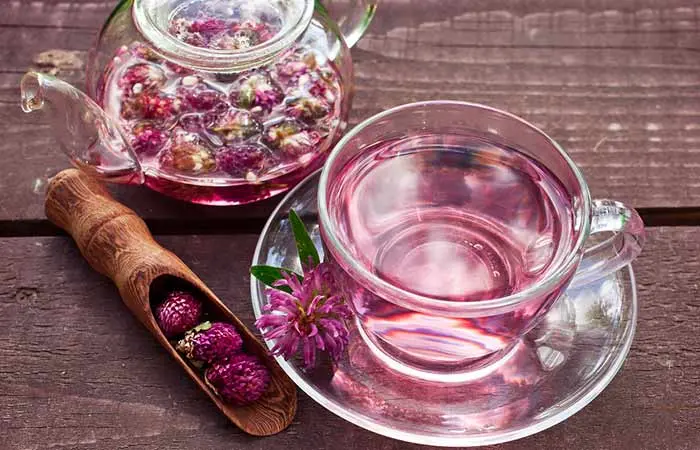
What You Need
- Red clover blossoms: 3 teaspoons, dried
- Filtered water: 2 cups
- Teapot: small-medium sized
Let’s Make It!
- Bring the water to a boil in a stainless steel pot.
- Add the blossoms to the pot and leave them to simmer for 2-5 minutes.
- Turn off the heat.
- Allow the mixture to steep for 10-15 minutes.
- Strain the mixture into serving cups.
- Serve hot or warm.
You can add herbs like burdock root, evening primrose, or chamomile to this blend.
Lisa Jordan goes on to share her experience of trying red clover tea for the first time: “I had read that [its] tea was slightly sweet and that the leaves had a taste that hinted at vanilla so it was with great anticipation that I raised the cup to my lips. I took my first sip and it tasted rather…blech. Mushrooms. It tasted like weak mushroom water.” However, she mentions that this may have been because the flowers she used did not have their normal sweetness.
How much red clover can you consume?
What Is The Recommended Dose Of Red Clover?
With current research findings and data, it is difficult to establish a safe dose range for red clover across age groups. In fact, there is no recommended dose established yet.
However, many clinical trials suggest that daily doses of 80–120 mg of isoflavones, in general, have the most significant effect on subjects. This dose range showed almost no toxicity in them.
Hence, if you are using/wish to use red clover supplements, take a dose equivalent to this range. Your healthcare provider would be the right person to set the best dose for you.
Red clover thrives in Europe, Central Asia, and North Africa. It is packed with many beneficial phytonutrients such as flavonoids, coumarins, isoflavones, and pterocarpans. These pink-red flower heads are traditionally used to manage cough and menopause symptoms like hot flashes. In addition, red clover benefits women by contributing to better circulation, offering relaxation and enhancing their overall health. Red clover tea, along with its supplements and powders, is an excellent way to reap its benefits. However, excessive use can lead to side effects. Hence, moderate intake is advised.
Frequently Asked Questions
Can red clover cause weight gain?
No. Many anecdotal studies link red clover with weight loss. However, limited research is available in this regard.
Is red clover tea good for the kidneys?
Many anecdotal studies suggest that red clover tea is good for the kidneys. However, more research is warranted.
Is red clover the same as cloves?
No, both are different. Clover is a herb with medicinal properties while clove is a pungent aromatic spice with its own health benefits and uses, like using clove water for hair growth.
How do you use red clover for fertility?
You can take red clover in the form of tea, supplements, extracts, and tinctures to promote fertility. However, consult your doctor for more information.
Illustration: How Red Clover Benefits Your Health, Uses, And Dosage

Image: Stable Diffusion/StyleCraze Design Team
References
Articles on StyleCraze are backed by verified information from peer-reviewed and academic research papers, reputed organizations, research institutions, and medical associations to ensure accuracy and relevance. Read our editorial policy to learn more.
- Red Clover.
https://www.nccih.nih.gov/health/red-clover - Trifolium pratense L. NewCROP, New Crop Resource Online Program, Purdue University.https://hort.purdue.edu/newcrop/default.html
- Menopause: a review of botanical dietary supplements” The American Journal of Medicine, Elsevier, US National Library of Medicine, National Institutes of Health.https://pubmed.ncbi.nlm.nih.gov/16414334/
- The effects of red clover on quality of life in post-menopausal women, Iranian Journal of Nursing and Midwifery Research, US National Library of Medicine, National Institutes of Health.https://www.ncbi.nlm.nih.gov/pmc/articles/PMC3590693/
- Red clover for treatment of hot flashes and menopausal symptoms: A systematic review and meta-analysis. Journal of Obstetrics and Gynaecology, US National Library of Medicine, National Institutes of Health.https://pubmed.ncbi.nlm.nih.gov/26471215/
- Soy, Red Clover, and Isoflavones and Breast Cancer: A Systematic Review, PLOS One, CiteSeerX, The Pennsylvania State University.https://citeseerx.ist.psu.edu/viewdoc/download?doi=10.1.1.781.264&rep=rep1&type=pdf
- Biochanin A, a Phytoestrogenic Isoflavone with Selective Inhibition of Phosphodiesterase 4, Suppresses Ovalbumin-Induced Airway Hyperresponsiveness, Evidence-Based Complementary and Alternative Medicine, US National Library of Medicine, National Institutes of Health.https://www.ncbi.nlm.nih.gov/pmc/articles/PMC3062156/
- Effect of Red Clover Isoflavones over Skin, Appendages, and Mucosal Status in Postmenopausal Women, Obstetrics and Gynecology International, US National Library of Medicine, National Institutes of Health.https://www.ncbi.nlm.nih.gov/pmc/articles/PMC3206499/
- Effect of Red Clover Isoflavones on Cox-2 Activity in Murine and Human Monocyte/Macrophage Cells, Nutrition and Cancer, CiteSeerX, THe Pennsylvania State University.https://citeseerx.ist.psu.edu/viewdoc/download?doi=10.1.1.658.814&rep=rep1&type=pdf
- Clovamide and Flavonoids from Leaves of Trifolium pratense and T. pratense subsp. nivale Grown in Italy,https://journals.sagepub.com/doi/pdf/10.1177/1934578X1501000635
- Effects of isoflavones from red clover (Trifolium pratense) on skin changes induced by ovariectomy in rats. Phytotherapy Research, US National Library of Medicine, National Institutes of Health.https://pubmed.ncbi.nlm.nih.gov/17078110/
- Cleanse, blood cleansing herb-supplement-nutrients information, Blood Cleanse, blood cleansing herb-supplement-nutrients information, CiteSeerx, The Pennsylvania State University.https://citeseerx.ist.psu.edu/viewdoc/download;jsessionid=231BE017D7CD5DFFB98650E5E31E94D1?doi=10.1.1.394.1978&rep=rep1&type=pdf
- Herbal Treatment for Dermatologic Disorders, Herbal Medicine: Biomolecular and Clinical Aspects, US National Library of Medicine, National Institutes of Health.https://www.ncbi.nlm.nih.gov/books/NBK92761/
- Phytoestrogens and the metabolic syndrome. The Journal of Biochemistry and Molecular Biology, US National Library of Medicine, National Institutes of Health.https://pubmed.ncbi.nlm.nih.gov/23318879/
- Progesterone in botanicals could aid women’s health, UIC today, The University of Illinois at Chicago.https://today.uic.edu/progesterone-in-botanicals-could-aid-womens-health/
- Phytoestrogens in Botanical Dietary Supplements: Implications for Cancer, INTEGRATIVE CANCER THERAPIES, CiteSeerX, The Pennsylvania State University.https://citeseerx.ist.psu.edu/viewdoc/download?doi=10.1.1.1027.8039&rep=rep1&type=pdf
- Intake of Novel Red Clover Supplementation for 12 Weeks Improves Bone Status in Healthy Menopausal Women, Evidence-Based Complementary and Alternative Medicine, US National Library of Medicine, National Institutes of Health.
https://pubmed.ncbi.nlm.nih.gov/26265926/ - Effects of phytoestrogenic isoflavones from red clover (Trifolium pratense L.) on experimental osteoporosis, Phytotherapy Research, US National Library of Medicine, National Institutes of Health.
https://pubmed.ncbi.nlm.nih.gov/17117453/ - Soy and Red Clover for Midlife and Aging, Author manuscript, HHS Public Access, US National Library of Medicine, National Institutes of Health.
https://www.ncbi.nlm.nih.gov/pmc/articles/PMC1780039/ - The Chemical and Biological Profile of a Red Clover (Trifolium pratense) Phase II Clinical Extract, Author manuscript, HHS Public Access, US National Library of Medicine, National Institutes of Health.
https://www.ncbi.nlm.nih.gov/pmc/articles/PMC1780253/ - Coagulation Disorder following Red Clover (Trifolium Pratense) Misuse: a Case Report
https://pmc.ncbi.nlm.nih.gov/articles/PMC6549048/
Read full bio of Vd. Babita Sharma
Read full bio of Swathi Handoo
Read full bio of Ravi Teja Tadimalla
Read full bio of Aparna Mallampalli





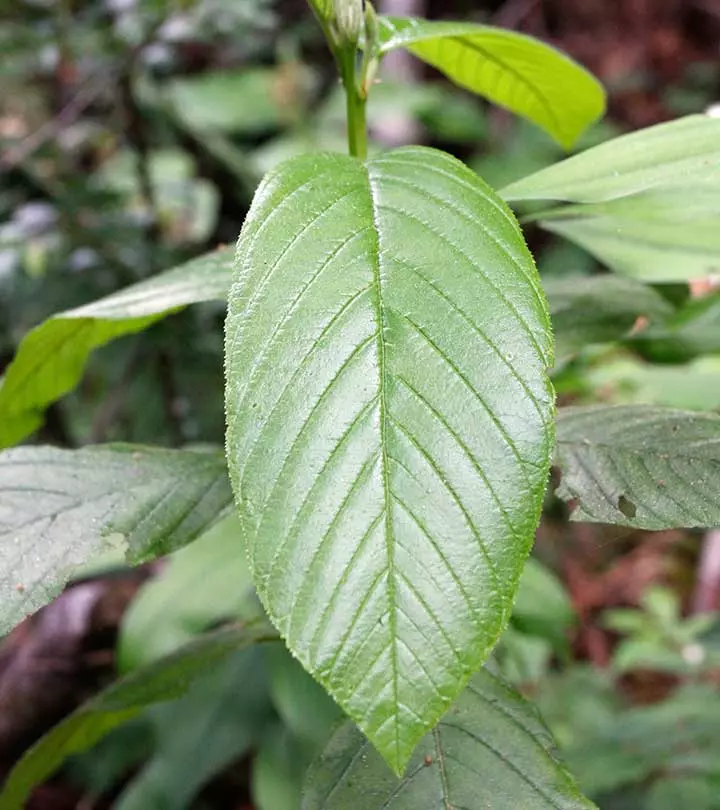
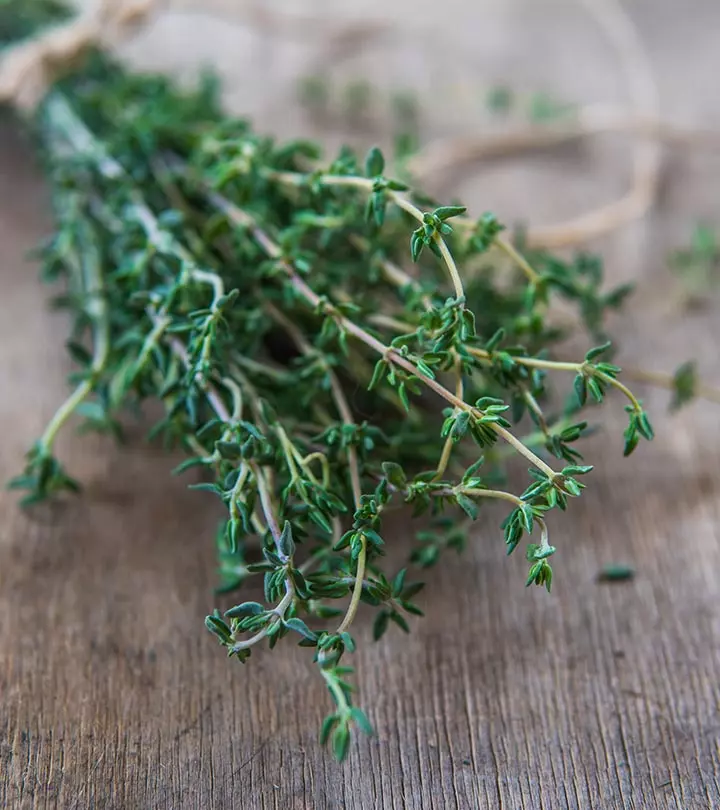



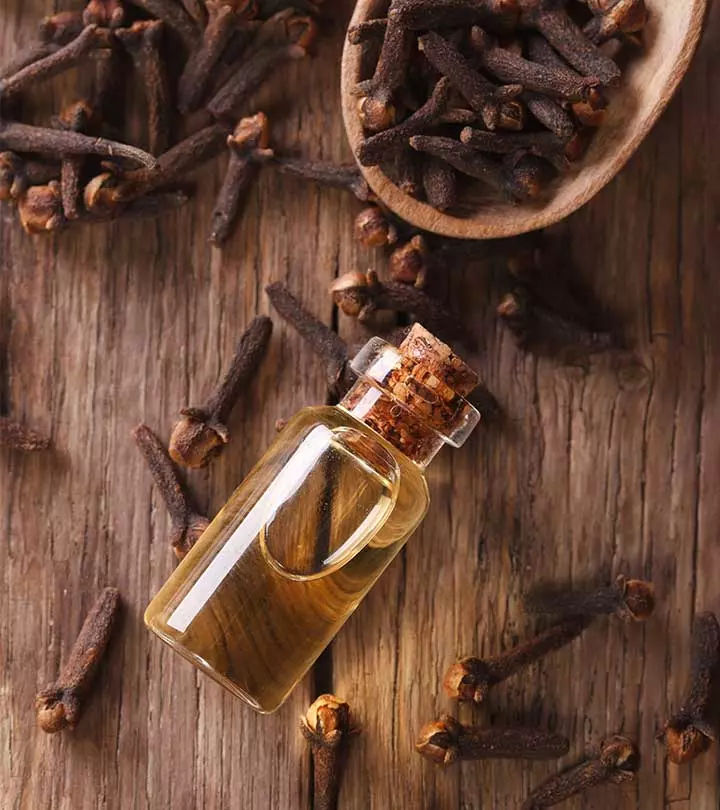
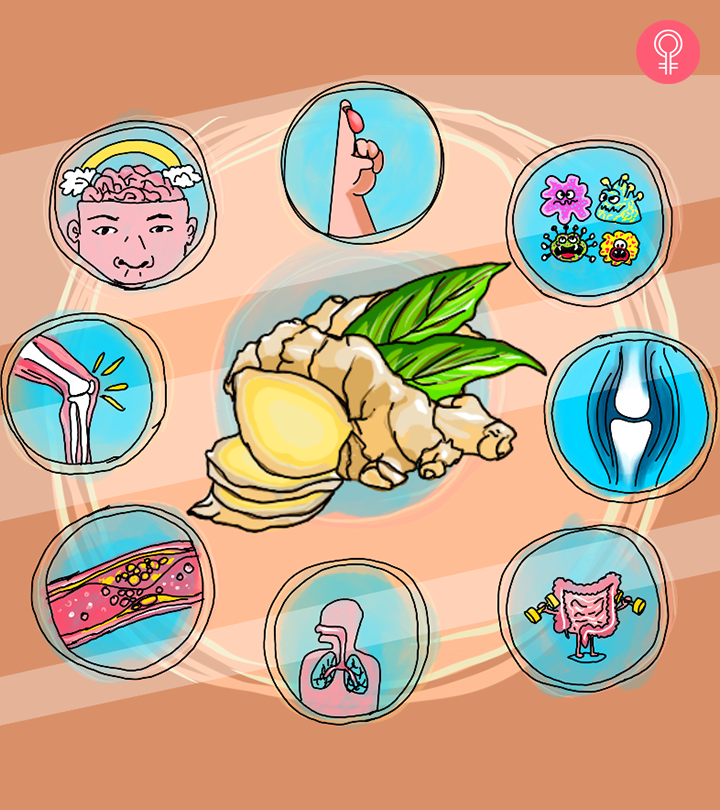
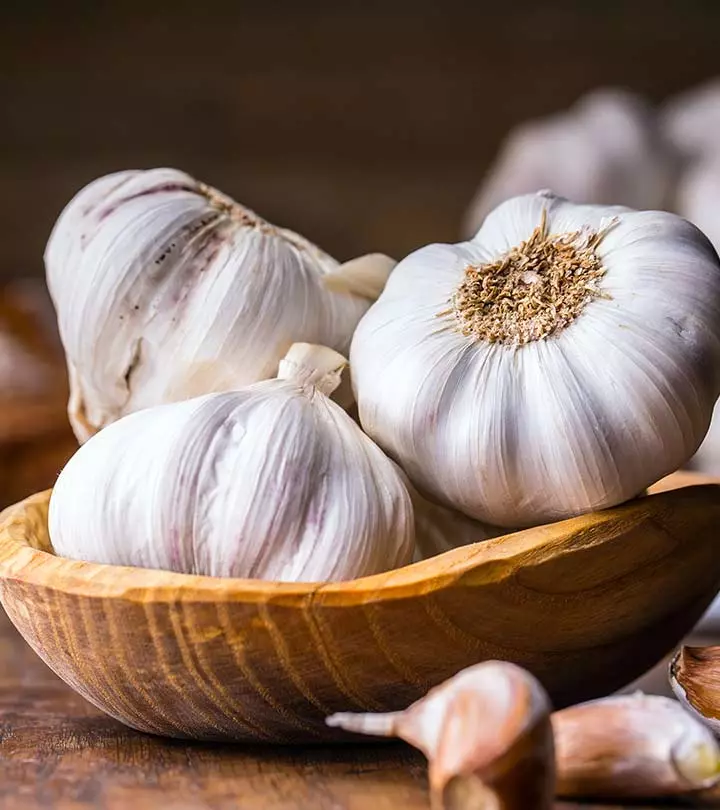
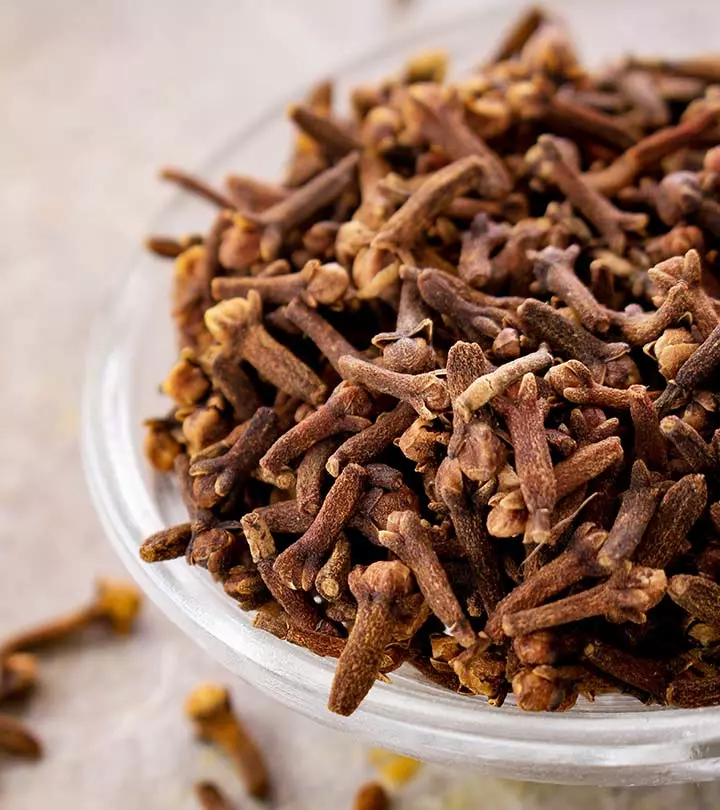
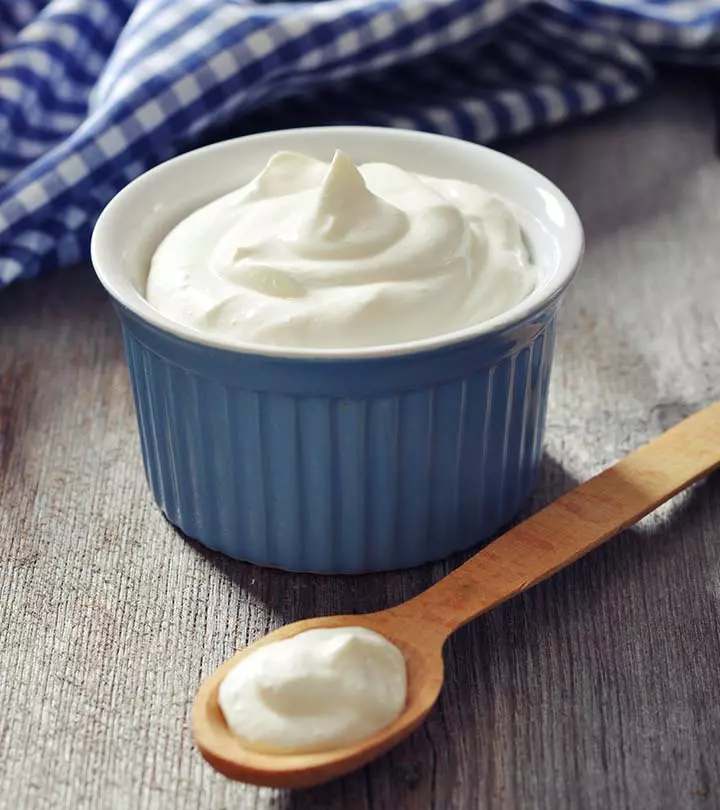
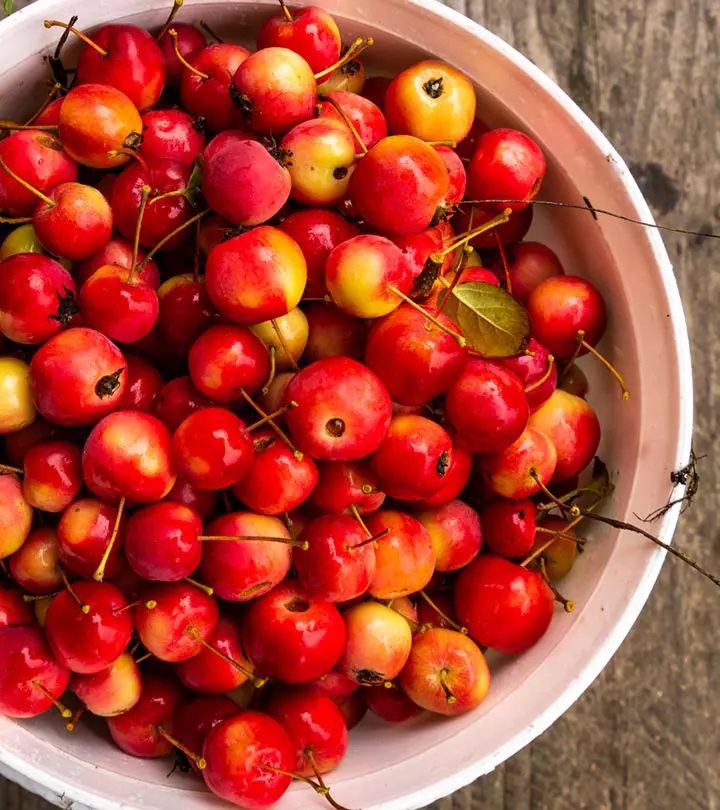
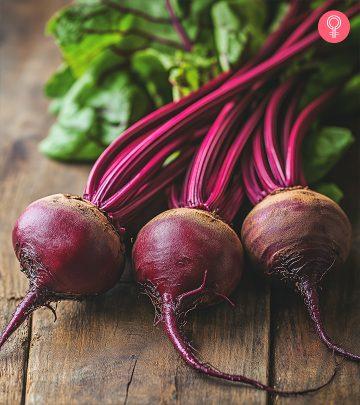
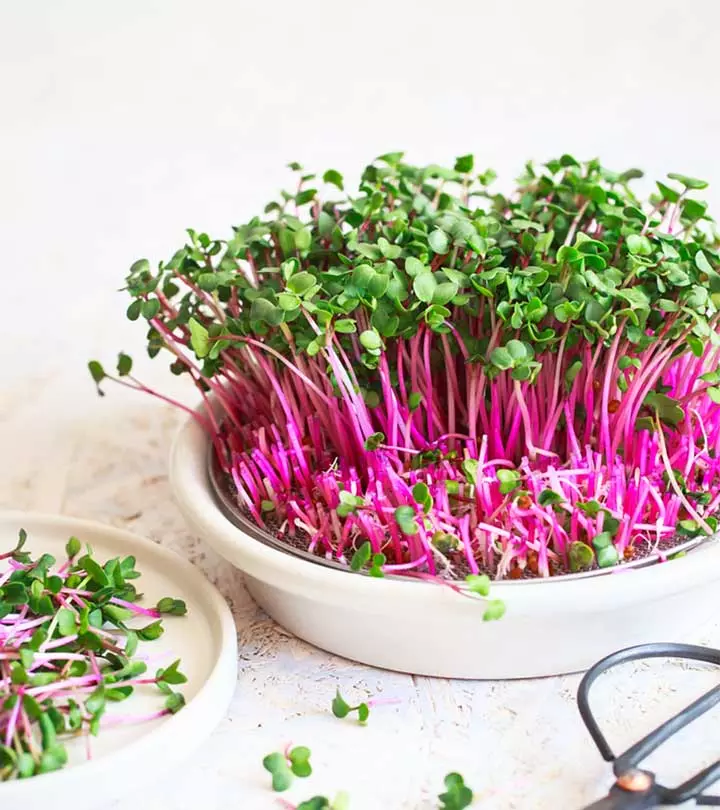
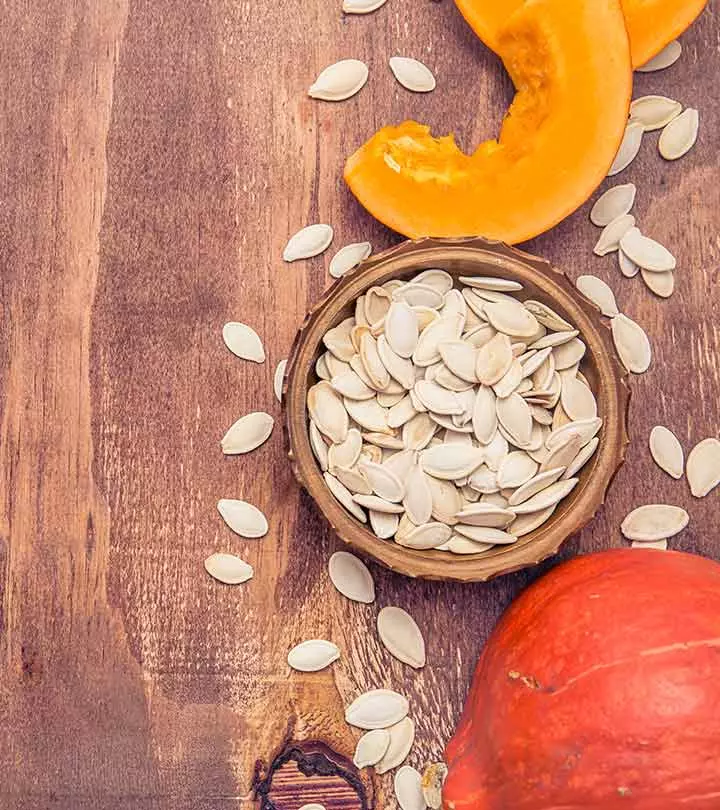
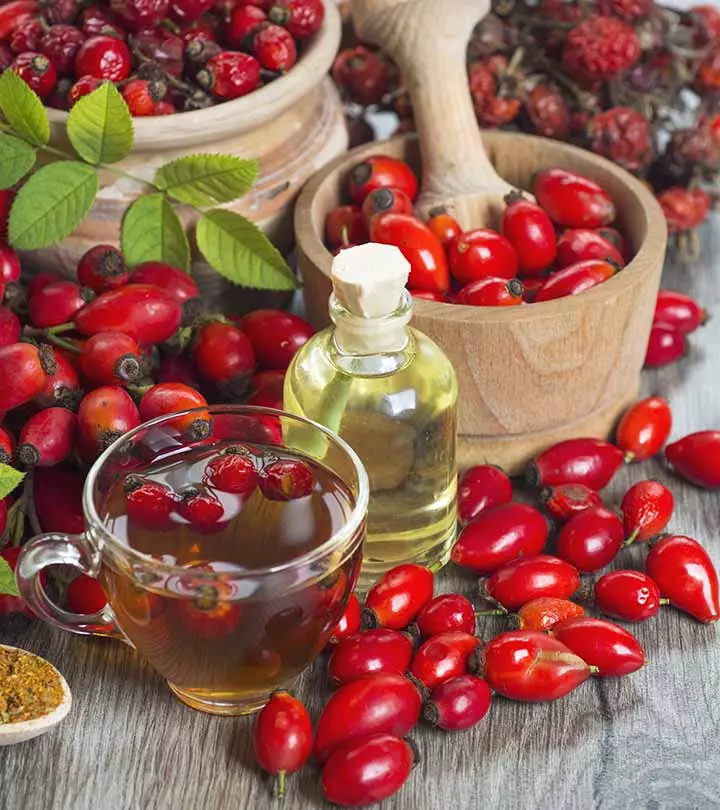

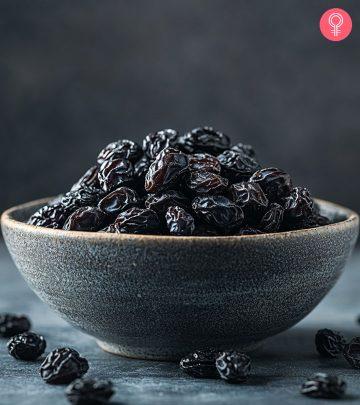
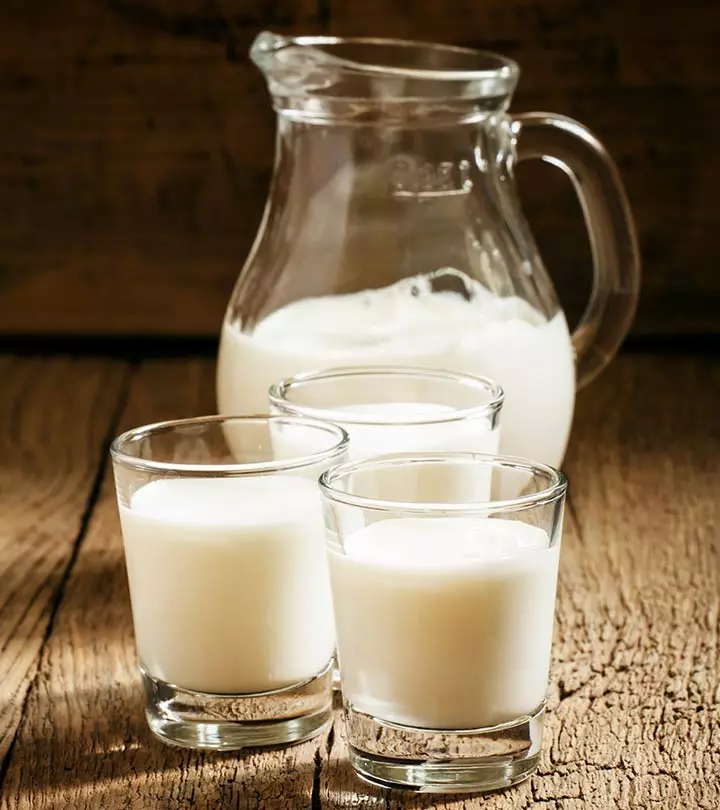
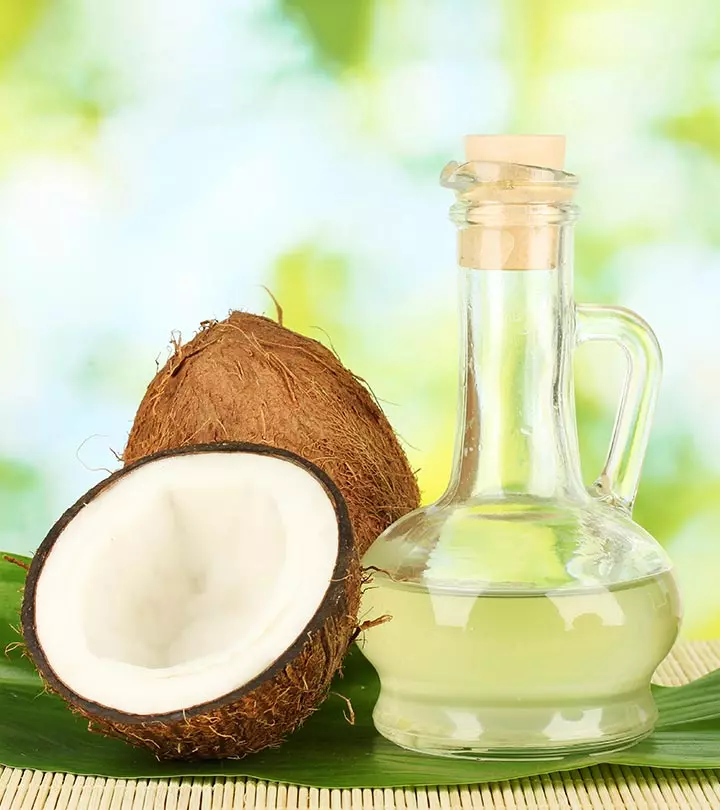
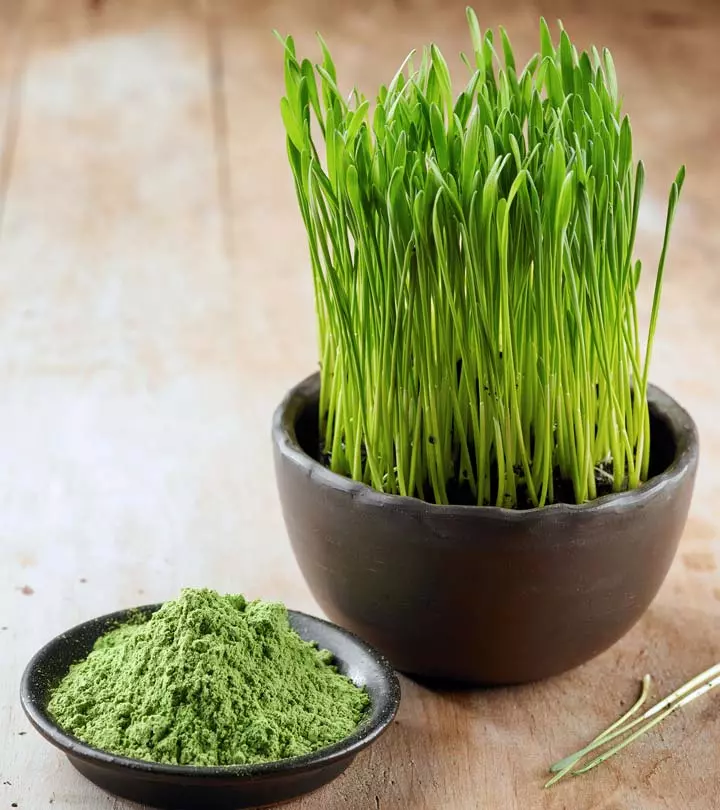
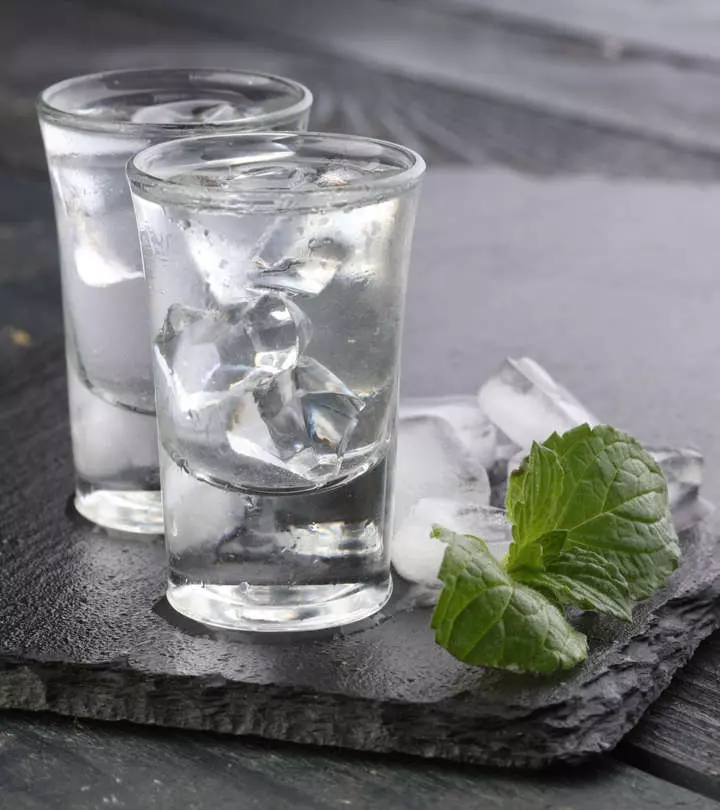
Community Experiences
Join the conversation and become a part of our empowering community! Share your stories, experiences, and insights to connect with other beauty, lifestyle, and health enthusiasts.